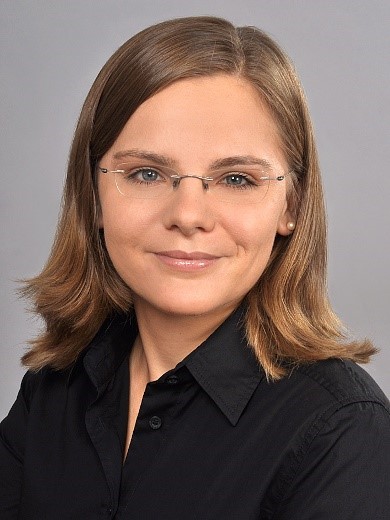Nora Kulak

Session: Chemical-Biological (Re-)Synthesis
Title: Optimization of metal catalysts
for oxidation reactions
Nora Kulak is a professor of Inorganic Chemistry at Otto-von-Guericke-Universität Magdeburg since 2020. She received her diploma (2003) and PhD (2006) in Chemistry at Ruprecht-Karls-Universität Heidelberg. She was a postdoc at the Federal Institute for Materials Research and Testing (BAM) in Berlin (2006–2008) and the Massachusetts Institute of Technology (MIT) in Cambridge/MA (2008–2010). She was an assistant professor (without tenure track) in Bioinorganic Chemistry at Freie Universität Berlin (2011–2020). Nora Kulak is a recipient of awards from the Dr. Otto Röhm foundation (2016) and the Dr. Sophie Bernthsen foundation (2003). She was awarded fellowships for her PhD (2004) and postdoctoral studies (2008) by the state of Baden-Württemberg and the DAAD (German Academic Exchange Service), respectively. The research interest in the Kulak Lab lies in the design and synthesis of metal-based compounds that are biologically and/or catalytically active. The projects comprise organic synthesis, coordination chemistry and spectroscopic characterization of the metal complexes as well as of their interaction with biomolecules. A recent focus has been the rational design of ligands for tuning the redox activity of the corresponding metal complexes, e.g. by fluorination, for influencing their biological activity. Against the same background we are currently exploiting such approaches for the design of catalysts in oxidation reactions of industrially relevant compounds.
Optimization of metal catalysts for oxidation reactions
Metal-catalyzed oxidation reactions are of upmost importance for synthetic processes in industry as well as for biological processes in nature. This talk will discuss approaches for both these “worlds”, and how respective catalytic systems can be optimized. Synthetic chemistry, especially the synthesis of ligands and metal complexes, and applications of the corresponding metal-based compounds, will be covered. On the one hand, oxidation reactions with metal complexes can be optimized by a tuning of the respective redox potentials of the metals. This can be achieved by changing the electronic properties of the metal-bound ligands, e.g. by substitution with electron-withdrawing groups containing the element fluorine. On the other hand, for reactions that do not require high selectivity or a delicate tuning of the redox potential, sophisticated ligand design is not even necessary. Here, a straightforward screening approach can facilitate decision making in reaction design (choice of solvent, redox-active metal, reaction time and temperature). Small reaction volumes are applied during the optimization steps in order to reduce chemical waste.





